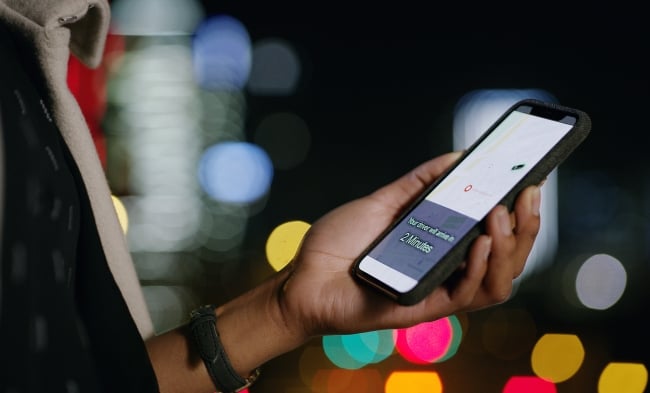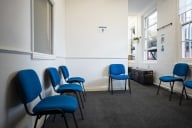You have /5 articles left.
Sign up for a free account or log in.

Campus-sponsored or student-created ridehailing solutions help keep students safe when traveling to or from campus late at night.
AlexanderFord/Getty Images
College students are known for having late nights and losing sleep, whether it’s staying up late working, studying or socializing, and these late nights can turn into situations that feel unsafe after dark.
A 2021 Student Voice survey by Inside Higher Ed, conducted by College Pulse, found 28 percent of students feel not too safe or not at all safe walking around their campus at night.
At residential campuses, campus leaders and student leaders have developed solutions to assist learners’ safety late at night getting around or back to campus. College-led safe ride services or student-created ride-hailing tech encourage students to make safe choices and promote community care around physical safety—contributing to overall well-being and success in college.
By the Numbers
According to 2019 research:
- The average college student goes to bed at 1:54 a.m.
- Half of 18- to 29-year-olds in the U.S. have ever used a ride-hailing service like Uber or Lyft.
Campus resources. Many colleges offer a safe ride service or walking resource for students on campus needing a ride to their dorm or car after dark. At the University of Virginia, trained and screened ambassadors provide escorts for students after dark (from 6 p.m. to 2 a.m.) wanting a companion on their walk home.
In-house applications help students get connected to safe rides on campus. Texas Tech Transportation and Parking Services created a mobile app in January to request Raider Rides, the college’s nighttime shuttle services, around campus in the evening. The University of Kansas also offers a KU SafeRide app that allows students to call a car or van to their location, on or off campus, from 10 p.m. to 2:30 a.m. every day during the week (with some exceptions for holidays and breaks).
Some colleges have partnered with a third-party ride-hailing service to provide discounted or free rides to students around campus.
At the University of Florida, UF Safe Rides by Lyft provides enrolled students half-off rides from Wednesday through Sunday between 9 p.m. and 3 a.m. within parts of Gainesville. The university also offers the Student Nighttime Auxiliary Patrol, with free, nightly campus transportation after dark (from 6:30 p.m. to 3 a.m. during the fall and spring and from 8:30 p.m. to 3 a.m. during the summer).
Peer-led services. Students around the country have offered up their own cars to take students home when they need a lift through volunteer or discounted opportunities.
A student group at the University of Georgia hopes to prevent drinking and driving and other dangerous situations for students through providing rides for their peers. Designated Dawgs has given free rides on the weekends from downtown and campus for UGA students for the past 20 years. Participants use the Transloc App to request a ride and provides vehicle and driver details similar to a traditional ride-hailing app.
In North Carolina, college students have solicited rides from their peers online for years, a term they call beeping. Beeping, as opposed to an Uber ride, is a low flat fee averaging $2 to $5 and based on student availability and interest.
At North Carolina State University, students post in a Facebook group called NCSU Beepers to request a beep (a ride), or to share their availability for beeping (driving). University of North Carolina at Wilmington offers the Boone Student Beeper, which was started in 2011 when Uber didn’t have services in the area.
At East Carolina University, two nursing students established their own independent beeping service in 2024, 2baddies1beep—known for their fun party vibe, including pink cowgirl hats, bumping tunes and flashing L-E-D sign on top of the car.
A student startup from the University of Notre Dame raised $300,000 to establish a subscription-based ride-hailing service that employs college students at an hourly rate and provides a more affordable option for learners in need of a ride. The Desi app launched at Notre Dame, Saint Mary’s and Holy Cross in fall 2023 and is led by three students from Notre Dame.
Women have also created their own ride-sharing groups to promote safety against gender-based violence. Ohio University’s Pink Cab is a student organization that operates out of a GroupMe chat, providing $5 rides to and from campus by fellow Ohio students.
Do you have a wellness tip that might help others encourage student success? Tell us about it.








